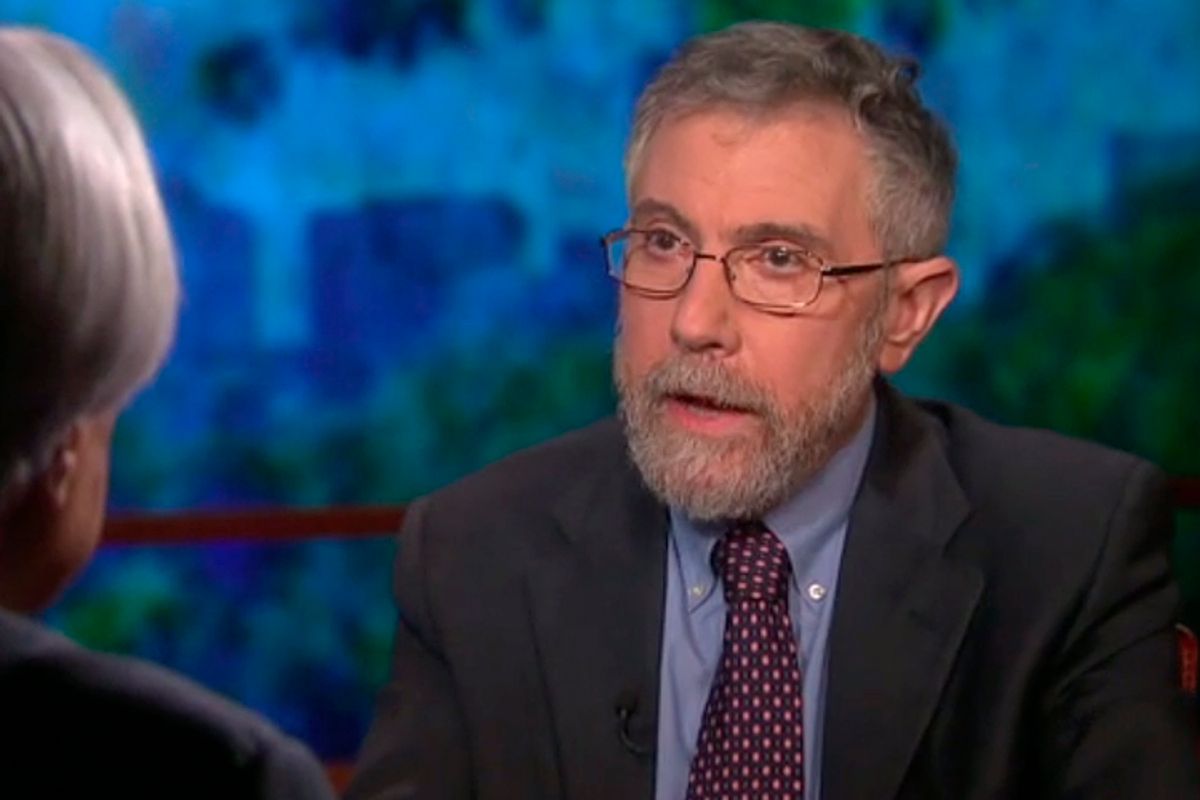It's been nearly six years since the demise of Lehman Brothers "ushered in the worst economic crisis since the 1930s," and New York Times columnist Paul Krugman would like to move on. But he can't, and by extension we can't, because recovery is nowhere near complete. And going for the wrong policies at this moment of fragile improvement but enduring "economic weakness" would spell disaster, and possibly "permanent depression," according to Krugman.
The years since the start of the crisis have been largely defined by two camps, the "too-muchers" and "not-enoughers," Krugman says. He falls into the latter camp (natch), but defines them both like this:
The too-muchers have warned incessantly that the things governments and central banks are doing to limit the depth of the slump are setting the stage for something even worse. Deficit spending, they suggested, could provoke a Greek-style crisis any day now — within two years, declared Alan Simpson and Erskine Bowles some three and a half years ago. Asset purchases by the Federal Reserve would “risk currency debasement and inflation,” declared a who’s who of Republican economists, investors, and pundits in a 2010 open letter to Ben Bernanke.
The not-enoughers — a group that includes yours truly — have argued all along that the clear and present danger is Japanification rather than Hellenization. That is, they have warned that inadequate fiscal stimulus and a premature turn to austerity could lead to a lost decade or more of economic depression, that the Fed should be doing even more to boost the economy, that deflation, not inflation, was the great risk facing the Western world.
As Krugman has pointed out in many a column, the too-muchers have been really, really bad at predicting outcomes, and these doomsday scenarios have not come to pass. But the not-enoughers' concerns about a "quasi-permanent slump" continue to be pressing.
Which leads us to Europe, where the too-muchers have called far more shots than in the United States:
European officials eagerly embraced now-discredited doctrines that allegedly justified fiscal austerity even in depressed economies (although America has de facto done a lot of austerity, too, thanks to the sequester and cuts at the state and local level). And the European Central Bank, or E.C.B., not only failed to match the Fed’s asset purchases, it actually raised interest rates back in 2011 to head off the imaginary risk of inflation.
The E.C.B. reversed course when Europe slid back into recession, and, as I’ve already mentioned, under Mario Draghi’s leadership, it did a lot to alleviate the European debt crisis. But this wasn’t enough. The European economy did start growing again last year, but not enough to make more than a small dent in the unemployment rate.
And now growth has stalled, while inflation has fallen far below the E.C.B.’s target of 2 percent, and prices are actually falling in debtor nations. It’s really a dismal picture. Mr. Draghi & Co. need to do whatever they can to try to turn things around, but given the political and institutional constraints they face, Europe will arguably be lucky if all it experiences is one lost decade.
That's not the situation we find ourselves in, Krugman says, but a few bad policies could throw us into the same kind of turmoil. And Krugman warns that the influence of the too-muchers is enduring. The challenge then becomes continuing to push back against these people, "who seem to have learned nothing from being wrong year after year, and are still agitating for higher rates."

Shares